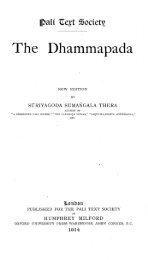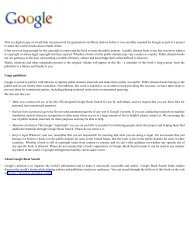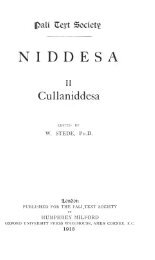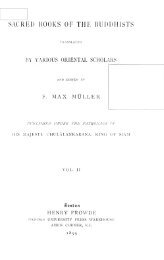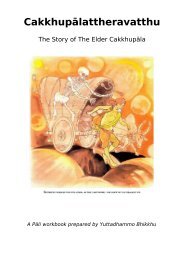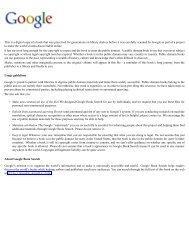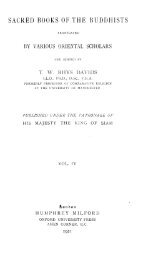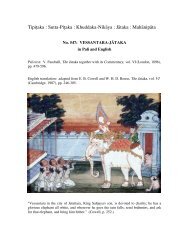Lessons In Practical Buddhism - Sirimangalo.Org
Lessons In Practical Buddhism - Sirimangalo.Org
Lessons In Practical Buddhism - Sirimangalo.Org
You also want an ePaper? Increase the reach of your titles
YUMPU automatically turns print PDFs into web optimized ePapers that Google loves.
Besides these four requisites, we should understand the<br />
Buddha’s advice as applying to all of our possessions.<br />
Whatever material objects we make use of, they should be<br />
only for the purpose of carrying out our lives in a way that<br />
leads us closer to understanding the truth; we should shun<br />
possessions that possess us – those things that lead us<br />
further from realizing the truth, catching us up instead in the<br />
cycle of craving, addiction and suffering.<br />
All of the many tools we use, cars, telephones, computers<br />
and so on, are for some purpose. It is the purpose of each of<br />
them that should be reflected upon as a matter of course.<br />
What is the purpose of this object? Is it essential? Does its<br />
purpose lead me closer to enlightenment, or at least<br />
complement my practice? Or is it contradictory towards the<br />
aim that I am trying to reach and therefore a hindrance to<br />
my spiritual development?<br />
There is no need to do away with all of our possessions,<br />
especially those that help us maintain proper livelihood. We<br />
must make use of those things that support us in the<br />
physical realm, but we must use them in the right way.<br />
Proper use of material requisites is the third way by which<br />
we do away with our defilements, and thus it is another<br />
important part of the comprehensive practice.<br />
Bearing<br />
The fourth aspect of practice is in patiently bearing with<br />
those things that are unpleasant or difficult to bear. Certain<br />
experiences we meet with both in our practice and in our<br />
lives will be difficult to endure patiently; the natural<br />
tendency will be to avoid them at all cost. Heat, cold,<br />
hunger, thirst, even painful feelings that seem liable to take<br />
our lives away; all of these the Buddha said we must train<br />
ourselves to endure.<br />
Certainly, everyone in the world wishes to be happy and<br />
avoid suffering at all cost. Unfortunately, it is never possible<br />
to completely escape unpleasant situations. A person who is<br />
constantly running away from unpleasantness, a slave to<br />
their partiality, will have little chance of attaining true peace<br />
in the face of these experiences. “Khanti paramaṃ tapo<br />
44



